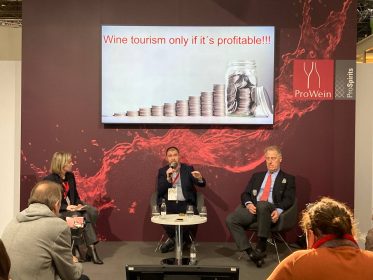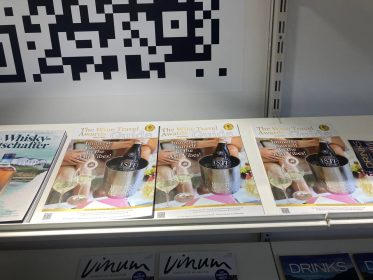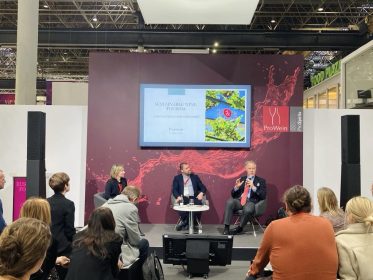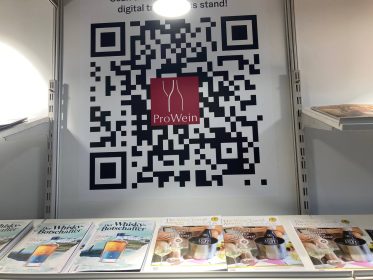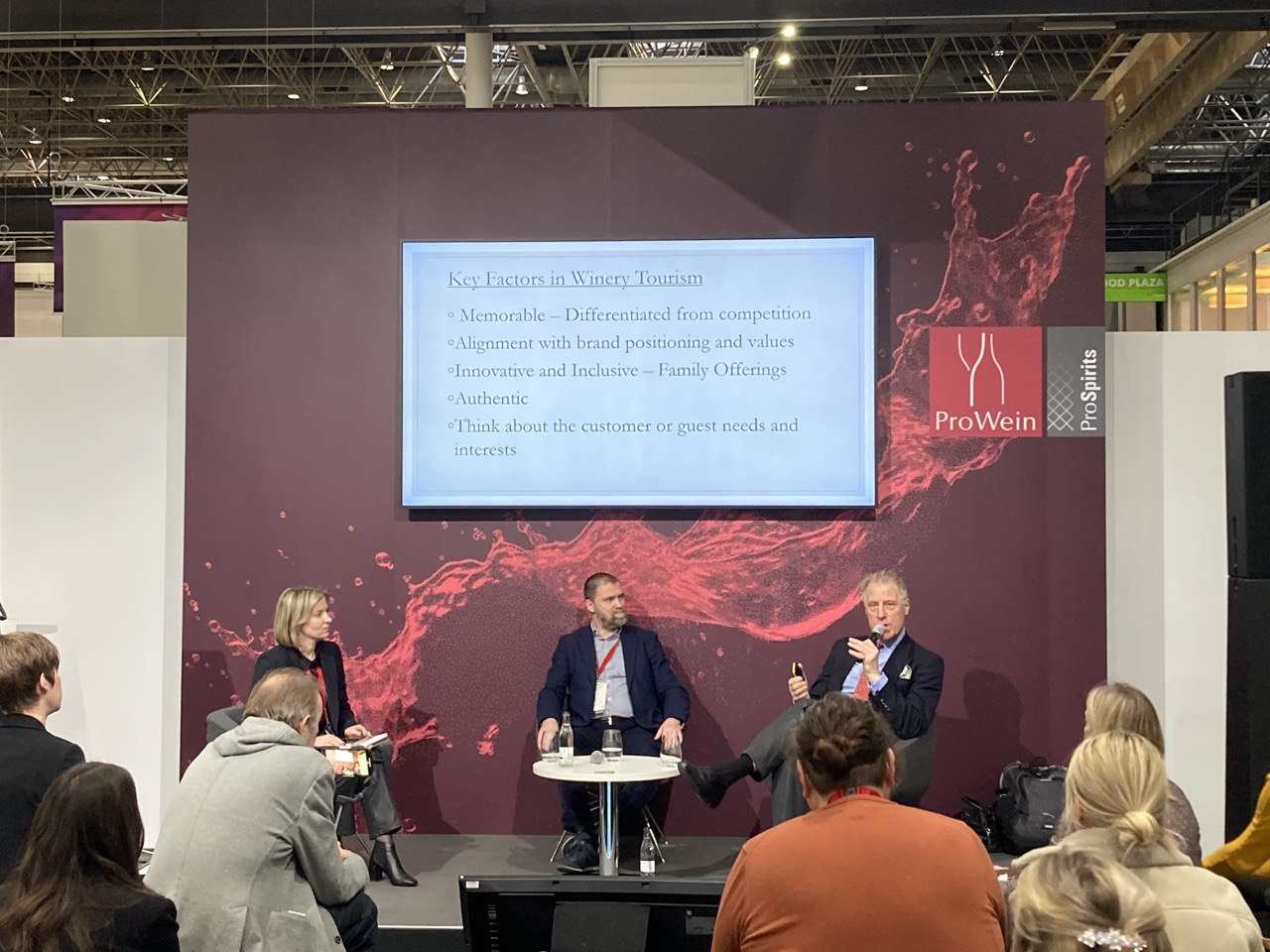The Future of Sustainable Wine Tourism: WTA Navigating a Changing Industry
ProWein 2025 showcased innovations and fresh approaches in the ever-evolving wine and spirits industry, addressing both global and regional challenges. For today’s winemakers and all those involved in the wine industry value chain, adapting to shifting consumer preferences and embracing sustainable practices is more crucial than ever.
On March 16, the Wine Travel Awards (WTA), in collaboration with Drinks+ Media Group, hosted an insightful session at ProWein 2025: “Introducing the Wine Consumer of the Future.” This engaging discussion offered forward-thinking perspectives on the future of wine tourism, highlighting how evolving consumer trends are reshaping the industry.
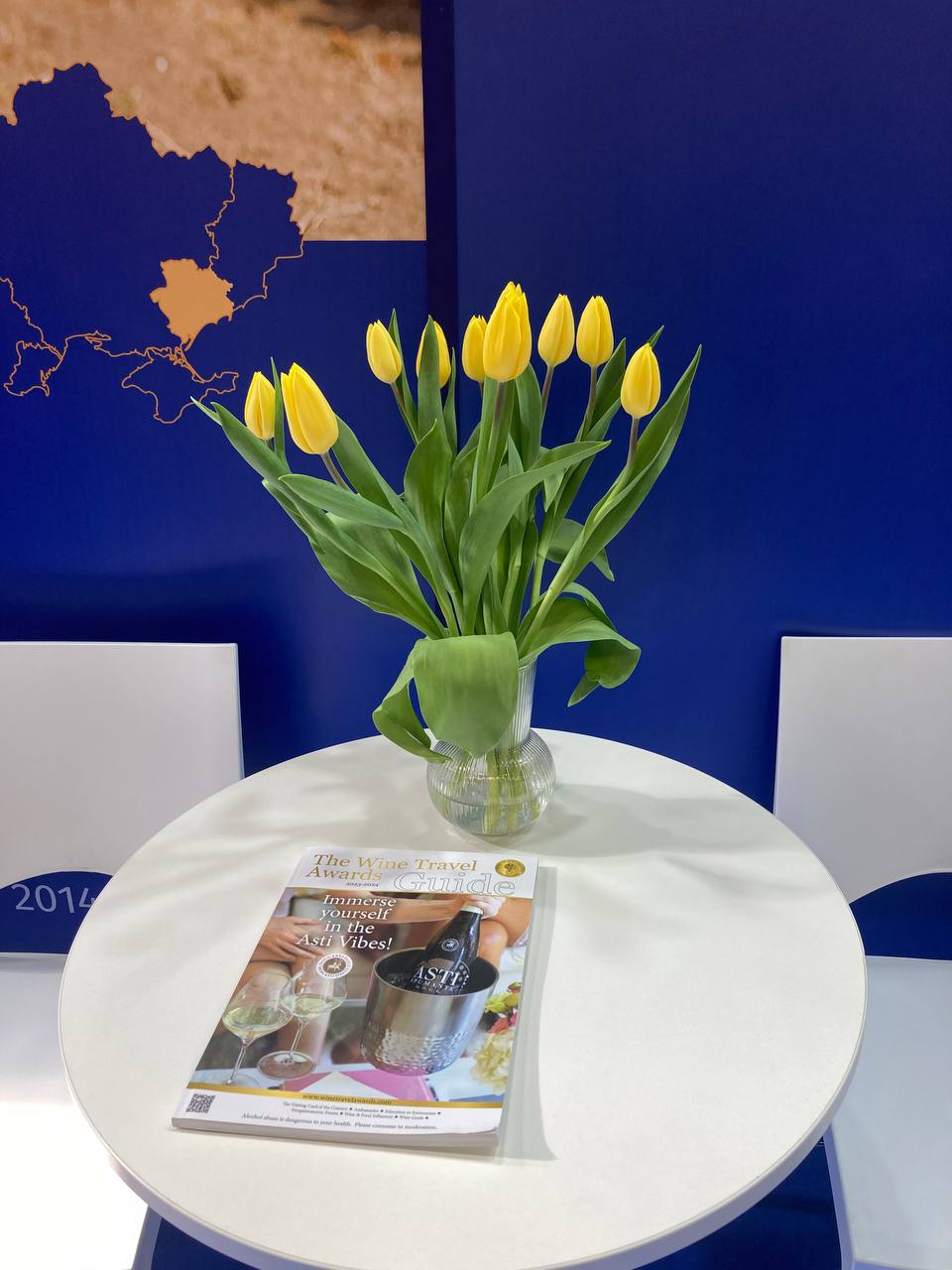
The session took place at the ProWein Business Forum – a pioneering addition to ProWein 2025, designed as a dynamic platform for innovation and thought leadership. This Illustrious forum united leading industry experts, media representatives, and wine enthusiasts to explore the key trends and challenges which influence the future of the global wine tourism market.
Shaping the Future of Wine Tourism: Engaging the Next Generation of Consumers
Panel Overview
The panel was hosted by Veronika Busel, Head of Operations of the Wine Travel Awards (WTA) and Communication Media Group Drinks+, whose background includes over a decade in international wine marketing and wine tourism.
This year, through the joint efforts of WTA and ProWein, the event achieved a remarkable milestone: attracting top industry voices to provide attendees with practical insights, innovative ideas, and actionable inspiration to advance their businesses.
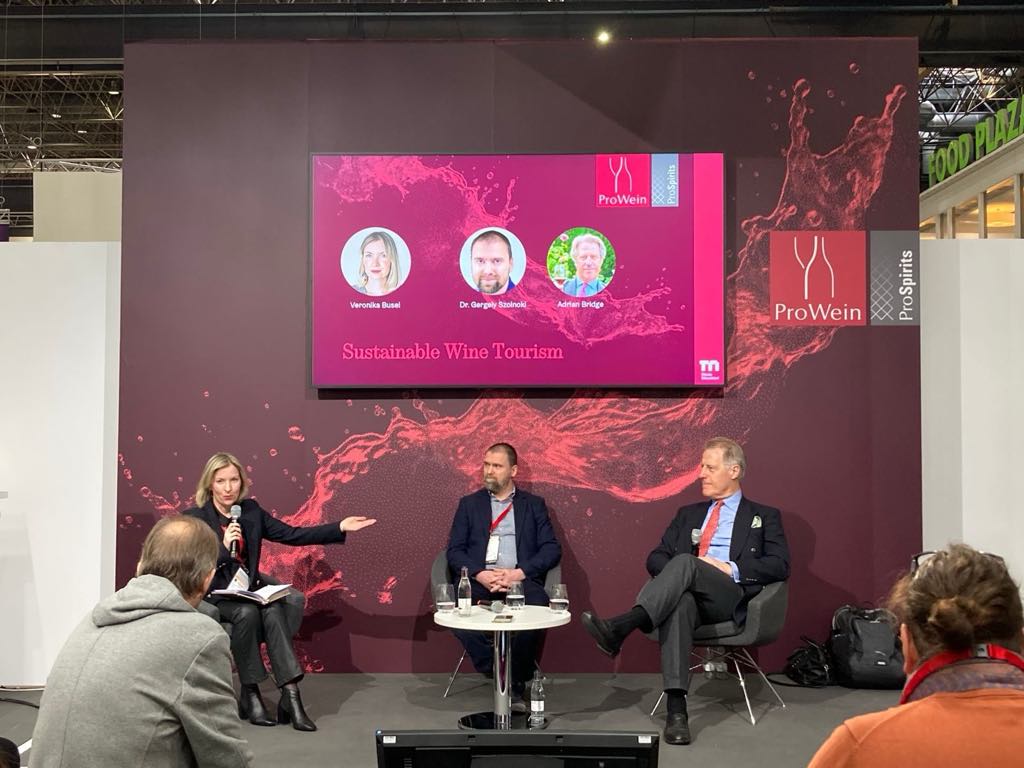
Speakers’ Profiles
The discussion featured two pivotal speakers, symbolizing the synergy between academic expertise and hands-on business leadership:
º Professor Dr. Gergely Szolnoki (Geisenheim University)
-
- A preeminent academic in wine tourism and consumer behavior, his research focuses on evolving wine consumer demographics and strategies to engage new markets.
- Recently appointed President of the OIV’s Expert Group on Economic Analysis, Markets, and Consumption (ECOMAR), where he leads a team developing a sustainable wine tourism framework.
- Delegated expert to the Great Wine Capitals and a founding figure in the WTA, serving as both a global judge for wine tourism awards and a consultant to the organization.
- Shared data-driven insights to outline the theoretical future of wine tourism.
º Adrian Bridge (CEO of The Fladgate Partnership & Managing Director of The Porto Protocol)
-
- Heads one of Portugal’s most renowned wine groups, celebrated for its historic legacy and innovation.
- A pioneer in transformative wine tourism, best known for World of Wine (WOW) in Porto – a WTA award-winning project (recognized in the Education in Enotourism category by WTA) with the WOW Wine School earning a Special Judges’ Choice Award under Nina Basset’s leadership.
- Represented the practical business perspective, detailing how to integrate large-scale tourism with traditional wine models sustainably.
- Сreating World of Wine (WOW) in Porto – a WTA award-winning project Represented the practical business perspective, detailing how to integrate large-scale tourism with traditional wine models sustainably.
Essential Insights on the Future of Sustainable Wine Tourism
Professor Dr. Szolnoki opened with a compelling exploration of evolving wine tourism trends, drawing from his deep expertise in consumer behavior and market dynamics. His presentation revealed how wineries – whether boutique estates or sprawling vineyards – can adapt to shifting visitor expectations, ensuring they captivate the next generation of wine enthusiasts.
- Beyond the Glass: Diversification as a Growth Engine
To captivate a broader audience, wineries must move past standard tastings and embrace a more immersive vision. Integrating local cuisine, hands-on winemaker interactions, and outdoor adventures transforms the experience – appealing not only to oenophiles but also to explorers seeking unique escapades. By pairing wine with sports, wellness, or art, estates can widen their allure, turning casual visitors into devoted guests. The key lies in offering more than just wine; it’s about crafting moments that resonate with both connoisseurs and curious adventurers alike.
- Sustainability as a Cornerstone & Local Authenticity
Eco-conscious practices – environmental stewardship, social responsibility, and economic resilience – are now non-negotiable. Wineries that embrace sustainability earn trust while standing out in a crowded market. Meanwhile, leveraging regional charm (especially when international travel dips) ensures a unique, place-rooted experience.
- Active Enotourism: Where Wine Meets Adventure
Today’s travelers seek hybrid experiences – hiking through vineyards, caravan stays, cycling wine trails, or even marathon events. These wellness-infused adventures appeal to active tourists who want to stay fit while embracing an exploratory, health-conscious, and nature-driven lifestyle – all while enjoying wine.
- Digital Bridges & Tech-Enhanced Storytelling
Virtual tastings, augmented reality tours, and immersive apps allow wineries to engage global audiences remotely, planting the seeds for future visits. Meanwhile, VR and digital education tools deepen engagement, making wine culture accessible to all.
- Seamless Accessibility & Family-Friendly Appeal
Removing barriers – better transit, RV-friendly routes, and streamlined logistics – encourages more visitors. And for families? Playgrounds, grape-juice tastings, and interactive tours transform wineries into destinations for all ages.
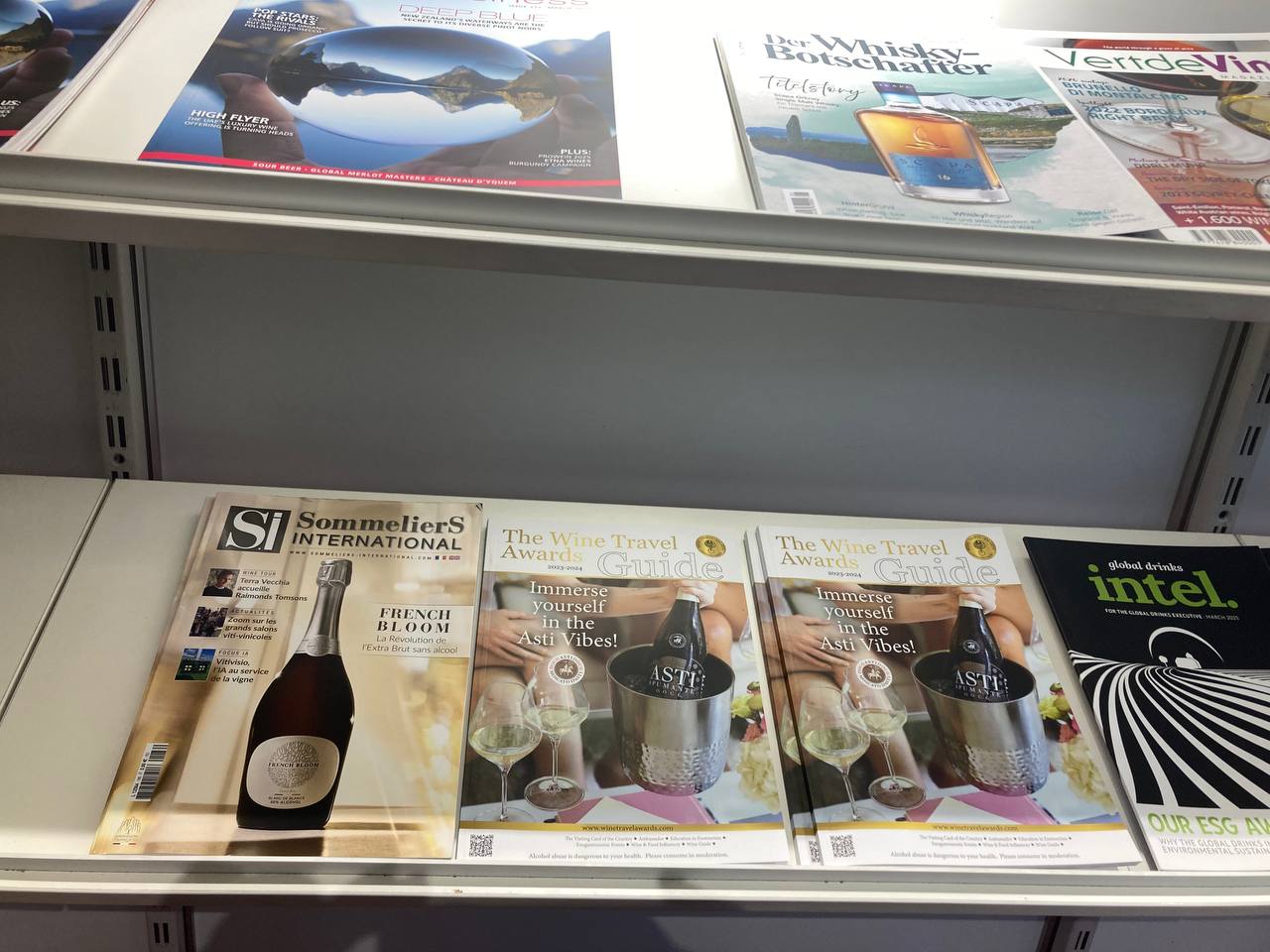
The Bigger Picture: Wine Tourism as an Emotional Journey
Speaking to the audience, Prof. Dr. Szolnoki underscored that contemporary wine tourism transcends mere bottle sales – it is an art of storytelling, where visitors crave a deeper bond with the land, its heritage, and its people. He posed a pivotal question for the modern wine industry: What truly defines our offering? Beyond the wine itself, it is the allure of experience, the resonance of emotion, and the richness of culture. Wineries that master this alchemy do not merely draw visitors; they inspire devoted ambassadors. In this, he affirmed, lies the essence – and the enduring profitability – of wine tourism.
Travelers, Not Tourists: Redefining the Wine Experience
Adrian Bridge, drawing from his experience leading The World of Wine – one of the most dynamic wine tourism projects globally – positioned wine tourism not merely as a tasting experience but as a powerful economic engine capable of reshaping winery business models. He highlighted its potential to unlock new pricing strategies, diversify revenue streams, and enhance financial stability. More than just an attraction, wine tourism, when executed professionally, transforms visitors into brand ambassadors, fostering long-term consumer loyalty.
Bridge’s vision reframes wine tourism as a strategic imperative rather than an add-on. Wineries must innovate beyond tastings, embed sustainability, and bridge the urban-rural divide. As he put it: “The future belongs to those who see tourism not as a side activity, but as the heartbeat of their brand.”
One of the most compelling aspects of his presentation was the idea of urban access to wine tourism. Bridge advocated for connecting city centers with vineyard experiences, making wine tourism more accessible to a larger audience. By closing the gap between urban environments and traditional wine regions, wineries can attract visitors who might not otherwise embark on a dedicated wine trip.
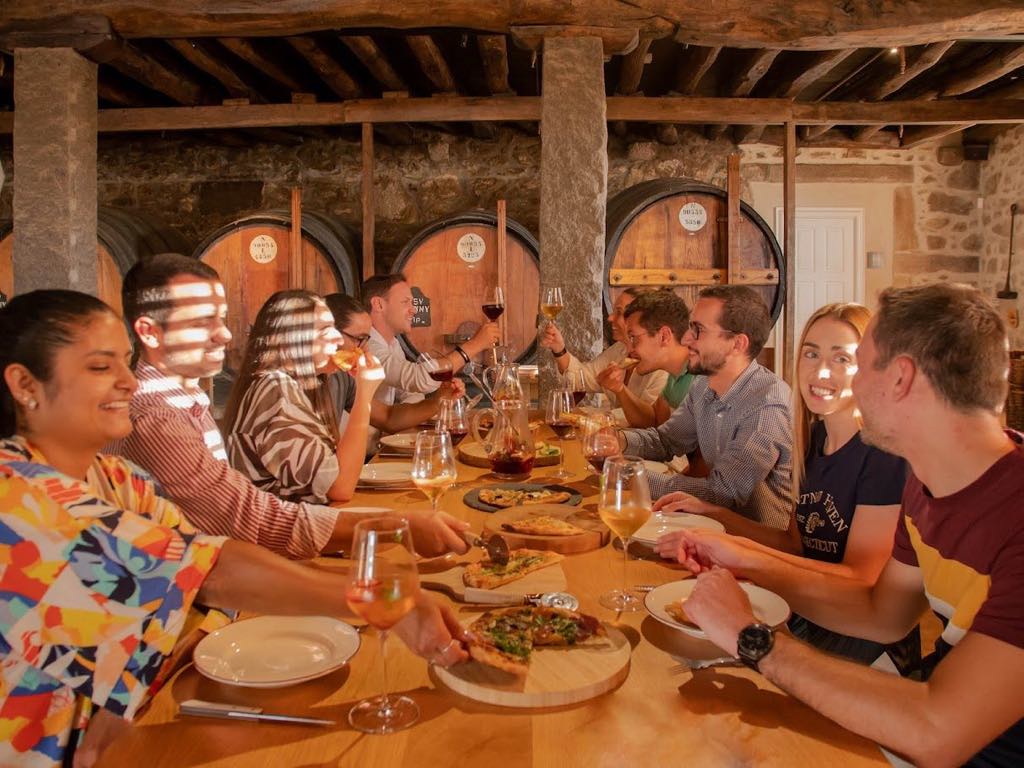
Consumer engagement was another critical theme. Bridge argued that wine tourism should be immersive, weaving the brand’s identity, culture, and values into the experience. He noted that meaningful engagement turns visitors into loyal customers, ultimately benefiting wineries. Echoing Dr. Szolnoki, Mr. Bridge agreed that wine tourism is about attracting new consumers but pushed back against oversimplified strategies: “Many wine companies think that wine tourism is purely the extension of what is happening at ProWein – you got wines on a table, you got a tasting, you are done. That’s not how it works.” He emphasized that successful wine tourism requires a deeper, more immersive approach, integrating storytelling, hospitality, and a clear strategic vision.
Bridge also addressed the evolving nature of consumer experience, offering his own perspective on tourism: “I’d challenge the term ‘tourists.’ To me, tourists are those who visit places simply to take from them. I prefer to talk about travelers – people who seek new experiences, explore, and engage with different cultures and destinations. This group is especially valuable because travelers become the best ambassadors. It really makes you think about what kind of experience you need to offer them.”
His insights painted a comprehensive picture of the changing role of wine tourism. From economic impact to branding, sustainability, and accessibility, he demonstrated that wine tourism is not just an ancillary activity but a transformative force in the wine industry. His perspective challenges wineries to rethink their approach, leveraging wine tourism as a tool for long-term growth and consumer engagement.
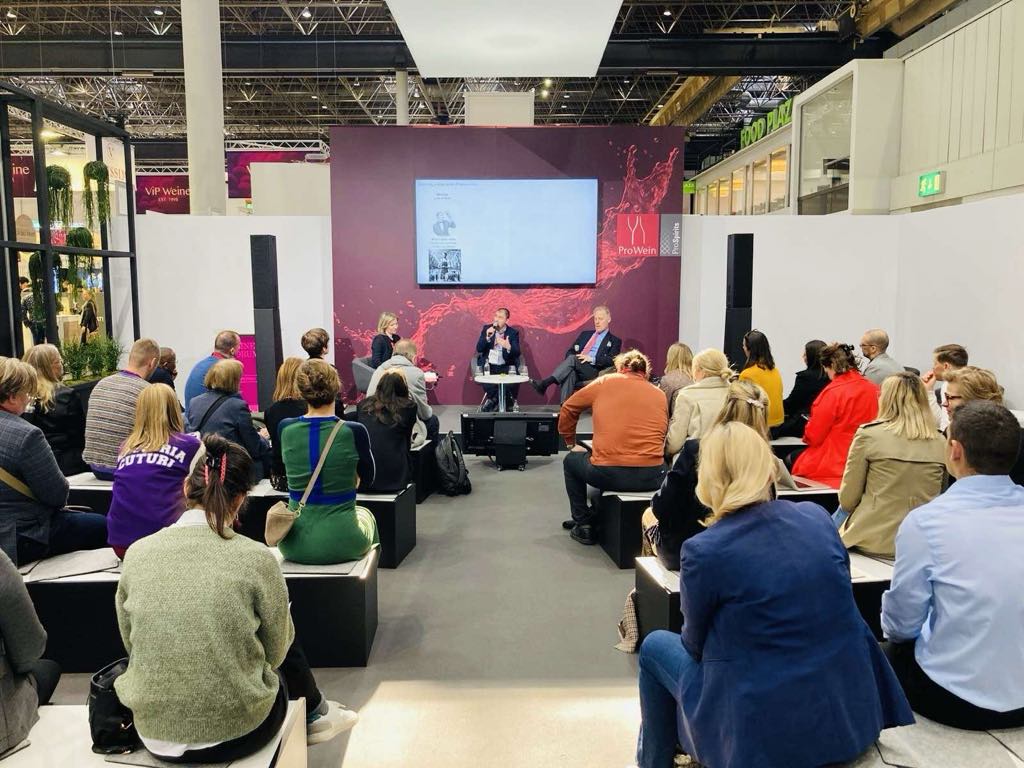
In the Vision Advised by Both Speakers: Contemporary Wine Tourism’s Key Principles
Be Memorable: stand out from the competition with a unique experience that people will remember.
Align with Your Brand: ensure the experience reflects your winery’s values and identity.
Be Innovative and Inclusive: offer options that cater to all guests, including families.
Create Authenticity: provide a genuine and immersive experience that connects guests to your winery’s story.
Focus on Guest Needs: consider the interests and preferences of your visitors to deliver a personalized experience.
Debate and Networking
The session wrapped up with a lively Q&A, giving the audience a chance to engage directly with the speakers, exchange ideas, and discuss potential collaborations. With over 50 attendees, the WTA event drew strong interest, and many took the opportunity to continue conversations with the experts long after the discussion ended.
Veronika Busel on WTA’s and ProWein’s Role in Transforming Wine Tourism Through Strategic Dialogue
I truly believe organizing this important discussion was a significant achievement – attracting professionals of this caliber who were willing to share genuine insights. This year, the WTA was responsible for organizing two events in collaboration with ProWein, and I’m confident we achieved our most important milestones: engaging a highly motivated audience (the auditorium was filled with industry professionals), sharing our vision on the key drivers of sustainable wine tourism, and improving our collective understanding of evolving consumer preferences in a changing global wine market.
The audience engagement exceeded our expectations. During the dedicated Q&A session, we received so many thoughtful questions that our entire panel was not only pleased but also surprised by the depth of perspectives shared. By the end, it wasn’t just three panelists speaking – it was a room full of professionals passionately debating the future of sustainable wine tourism!
Beyond the formal discussion, the energy continued even after the talk concluded, with conversations lasting an additional 25 minutes. We succeeded in creating a platform for meaningful dialogue, blending great content with a relaxed, approachable atmosphere that resonated with everyone in attendance. Most importantly, we had a great time – the team spirit on stage and the audience’s enthusiasm made it a truly memorable experience.
Stay connected with Wine Travel Awards:
